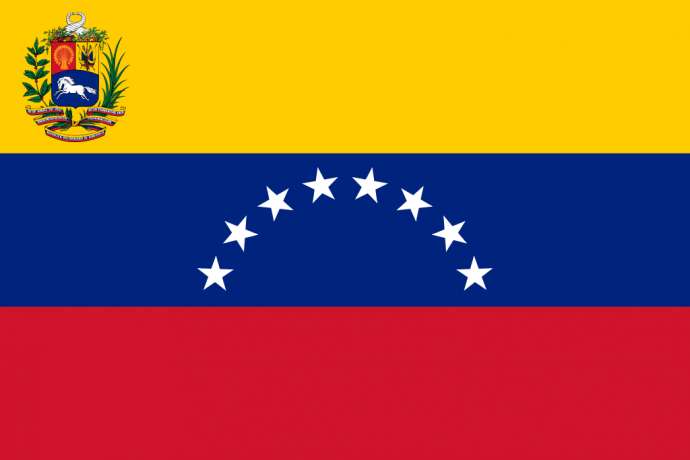STA, 23 December 2019 - A severe crisis in Venezuela has prompted the government to engage in repatriating Slovenians who would wish to leave the Latin American country. This has proved a major effort as Slovenia did not have a working repatriation system for a large number of people, despite a law governing repatriation having been passed in 2006.
Slovenian Interior Ministry data shows there are 335 Slovenian citizens in Venezuela, whereas the total number of people of Slovenian descent is estimated at 1,000.
Slovenian citizenship is not a condition for repatriation, which entails a special status and rights for 15 months, but Slovenian origin is.
Based on the expressed willingness of Slovenians in Venezuela to return home, the government assessed only up to 70 persons would ask to be resettled in Slovenia.
Until mid-December, 17 repatriation applications were granted for 30 people, Dejan Valentinčič, deputy head of the task force in charge of repatriation at the Office for Slovenians Abroad, told the STA.
He said that another eight applications for 23 people, which had been initially incomplete, were still being processed.
Valentinčič also said that the first group was expected to arrive in Slovenia before Christmas holidays and the second one after the holidays.
"The pace of arrivals will depend on individuals, on their or their families' obligations in Venezuela," he explained.
The office is issuing repatriation decisions on the basis of a detailed action plan it had drafted and which the government adopted in mid-November.
The cost of repatriation until 2021 was estimated at 1.2 million euro, State Secretary Olga Belec from the office, explained when the action plan was endorsed.
She did not discuss where exactly the repatriated people would settle, this being a sensitive issue.
However, she highlighted areas with good employment prospects alongside areas where the repatriated persons have relatives.
For instance, a 16-member family would be accommodated with their relatives.
Belec said this "pioneer project" was "an extremely demanding and complex matter" and a result of collaboration of seven government offices.
Until now, Slovenia had very limited experience with repatriation - one family from Syria was repatriated in 2013 due to the civil war there.
As for integration into society, the persons from Venezuela will have a 15-month repatriation status.
During this time they will be entitled to free healthcare and to a work permit as well as favourable treatment compared to third-country job seekers.
They will also have the right to Slovenian language courses and to more favourable higher education enrolment conditions.
But if they get a job, their repatriation status ends before the expiration of the 15-month period.
However, those who do not find a job after the 15 months will have different status options at their disposal.
Slovenian citizens will enjoy all rights stemming from citizenship, those without Slovenian citizenship but of Slovenian descent will be able to obtain a formal status in line with the law on relations with Slovenians abroad.
The third group - those who are not even of Slovenian origin, for instance spouses - will be subject to the law on foreigners.
The repatriation process from Venezuela remains open-ended. To close it, the government would have to take a decision to that effect, explained Velentinčič.
The project united Slovenian politics in that politicians from left and right agreed the country should help those who would like to leave crisis-stricken Venezuela.
The first cases of Slovenian immigrants in Venezuela date back to the time between the two world wars, but a larger wave was recorded after WWII, in the period until the end of the 1960s.
Slovenian Foreign Ministry data shows that an estimated 550 to 800 Slovenians, mostly from the western region of Primorska, emigrated there in that period.
The reasons were economic and partly political, but there was also a desire for adventure and the existing ties to Slovenians already in Venezuela.






